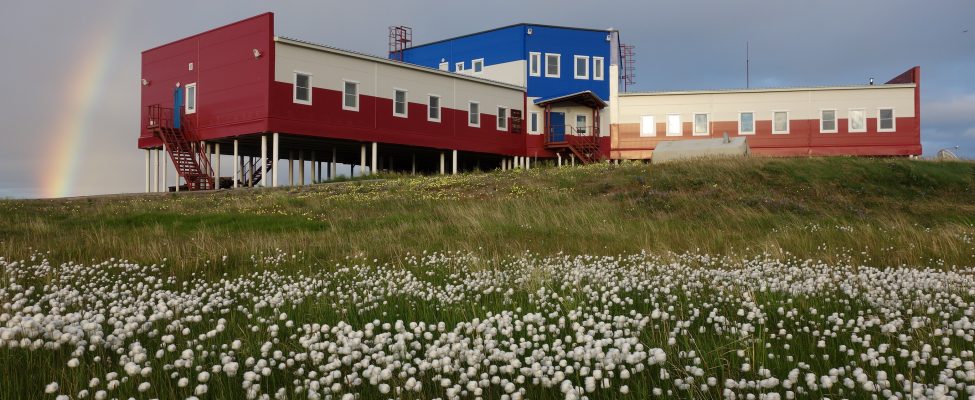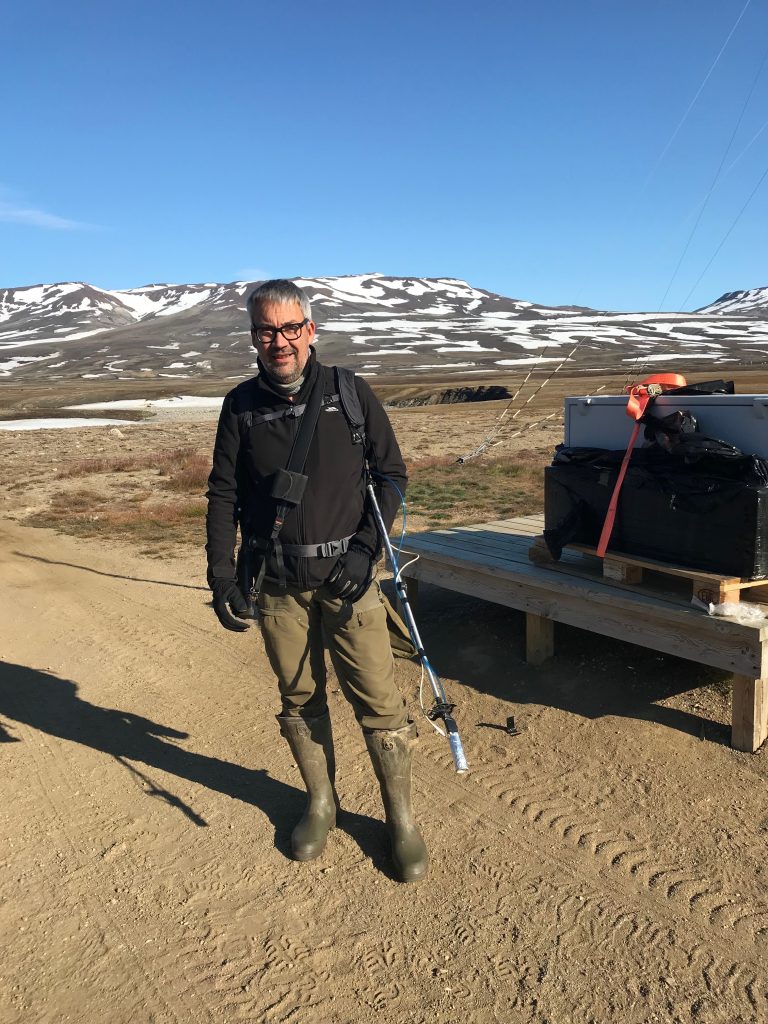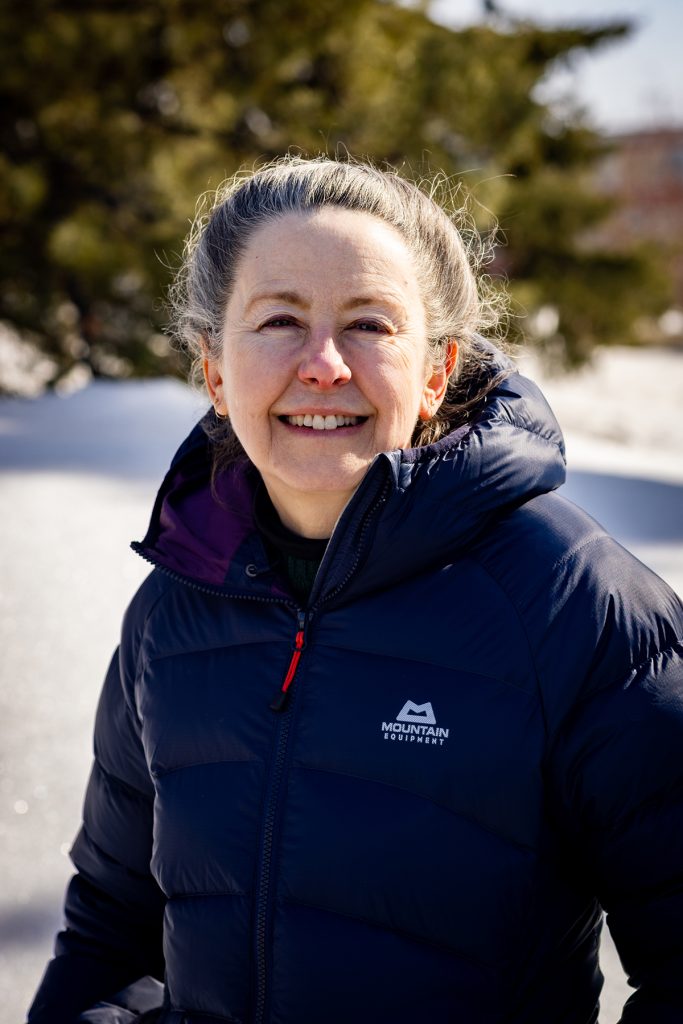The lack of data from Russia may render Arctic climate forecasting meaningless

The first scientific assessment of the damage done to Arctic climate research by the ban on cooperation with Russia sends a dire warning. “We have pretty much lost our ability to say anything sensible about the future,” says a leading researcher
Russia’s war in Ukraine and the resulting halt to western collaboration with Russia, now stifles climate research in the Arctic to such an extent that it may soon be impossible for scientists to predict future climate change in the Arctic, which would also weaken predictions of climate change in the rest of the world.
The first scientific analysis of the damage has just been published by Nature Climate Change, a scientific journal, authored by nine leading Arctic climate scientists.
“Because of the geopolitical consequences of the Ukraine crisis, the ability to both track and forecast the trajectory of the Arctic biome through climate-induced ecosystem change has deteriorated. And with that the ability to initiate well-informed management and conservation efforts, which would help mitigate some of the negative consequences and risks exposed by climate change, are greatly reduced,” the scientists write.
The landmasses of the Russian Arctic comprise about half of the Arctic and several of the ecosystems in this part of the Arctic are unique. The lack of insight into this particular section of the Arctic will almost double the statistical uncertainty of central parts of Arctic climate research, the scientists found.
One of the authors, Dr. Torben Røjle Christensen, scientific director of Zackenberg Research Station in East Greenland and professor at Aarhus University in Denmark and Oulu University in Finland, told ArcticToday that this hike in scientific uncertainty will render further predictions of climate change in the Arctic basically meaningless.
“If you double the statistical uncertainty, you make the projections less robust to a degree where we will basically not be able to determine if it is going one way or the other. We will be at a point where we have pretty much lost our ability to say anything sensible about the future,” he said.

On the front page
The new findings were published by Nature Climate Change, one of the most prestigious magazine of its kind in the world.
The scientists measured their opportunities for collecting scientific data at Arctic research stations organized in the international network known as INTERACT. The scientists compared the options that were available to them before the Ukraine war with those available today, where data-exchange and western scientific work at 17 science stations in the Russian Arctic north of 590 north has been rendered largely impossible.
In their article, the nine scientists presented statistical analysis of how the loss of data affects eight key components of the so called Earth System Models, where years of observations of temperatures, rain and snowfall are combined with factors such as carbon exchange between plants and atmosphere and emissions of CO2 from thawing permafrost.
Arctic science faced considerable challenges already before the Ukraine war, but the increased uncertainty caused by the lack of Russian data will inevitably have global consequences, the scientists found.
“Being a region characterized by rapid climate change the loss of Siberian research stations may be particularly detrimental for the ability to track global implications of thawing permafrost, shifts in biodiversity, including shrubification and carbon dynamics,” they write.
“The ability to support and advise local and global communities has decreased due to the loss of Russian stations representing half of the Arctic landmass,” the article claims.

1700 gigatons of CO2
One new problem among several presented by the lack of Russian data is the loss of insight into emissions of CO2 and methane from the permafrost in Siberia. The thaw of the permafrost may cause CO2 and methane to develop and escape from layers of up to 90 meters of frozen biomass consisting of decomposed dead plants and animals, much of which has been frozen since the latest ice-ages. The scientists call this biomass yedoma; a Russian term as Russia is the epicenter of this phenomena.
Other scientific studies have estimated that the landmasses of the Arctic hold some 1700 gigaton of CO2 or about double the amount already present in the atmosphere. Should any larger portions of this be released it could add dramatically to global warming.
In contradiction, the warming of the Arctic, where temperatures are rising three to four times as fast as in the rest of the world, is expected to lead to more rain and snowfall, larger forests and richer vegetation. Science predicts that this greening of the Arctic will suck out more CO2 from the atmosphere and bind more carbon to the surface of the Earth.
Cries for credible and authoritative findings on how these processes will affect the future of the world have been issued for years and now the scientists are even harder pressed by the lack of data from Russia.
“A tragedy”
The research station Samoylov Island, some 12 hours of river sailing or 150 kilometers of ice-driving on the Lena River from the town of Tiksi in Siberia provides a telling example.
For decades, Samoylov Island served as an important source of data for extensive Arctic climate research spearheaded by Germany’s Alfred Wegener Institute, a leading force in European climate science. Until Russia’s invasion of Ukraine in 2022, German scientists collaborated at Samoylov Island with colleagues from two Russian institutions of higher learning.
The German input and finance led to several new buildings at the station, advanced science equipment and systematic collection of data on everything from the atmosphere to permafrost. In 2010, then Russian prime minister Vladimir Putin visited Samoylov and praised it as a fine example of international collaboration.
After Russia’s invasion of Ukraine, however, the Germans are gone, collaboration has paused and the vital collection of data is either at risk or stopped.
In May, The coordinator of the Alfred Wegener Institute’s work at Samoylov, permafrost expert Anne Morgenstern, commented in ScienceInsider:
“We suspect it’s going to be very hard for them to maintain the measurements in the long term,” she said. “It’s just a tragedy, the whole situation, and everybody hopes that this horrible war ends soon.”
Similarly at the Northeast Science Station in Yakutia further to the east in Siberia. Here, for years, numerous US scientists were frequent guests.
Dr. Syndonia Bret-Harte, one of the nine authors of the article in Nature Climate Change, told ArcticToday, how the lack of data from Northeast Science Station now hampers her comparisons between permafrost in Alaska and Siberia.
“It is really sad, since comparison between the two was going to add quite a bit to our understanding of year round carbon dynamics in the Arctic,” she said.
“During COVID we sent a lot of instruments to Northeast Science Station and the staff there started collecting data for us. We were able to continue for a while after the war in Ukraine broke out but not any longer,” she said.
Dr. Bret-Harte, who is co-director of Toolik Field Station in Alaska, the largest research station in the US Arctic, and professor at University of Alaska Fairbanks, is no longer allowed to travel to Russia for work, and she has also found it challenging to transfer payments to the small, privately owned Northeast Science Station.
Last but not least, she has concerns for the safety of her Russian colleagues. They may be sought out by the Russian authorities if they continue to work with Western partners.
“It is not fair of western scientists to expect Russian scientists to endanger themselves for the sake of science,” she said.
Political obstacles
In 2022, added challenges arose as the European Union, the Arctic Council and a string of western governments put brakes on most scientific cooperation with Russia after the invasion of Ukraine. As described, this also prevented further access to the Russian Arctic science stations, a tough blow to climate science. Storms, snow, freezing temperatures and the lack of infrastructure make it very hard to run larger climate research projects in the Russian Arctic without a permanent roof, access to food, water, heating, instruments, logistics and other facilities at a proper research station.
The nine authors in Science Climate Change concede that still more of the ecosystems in the Arctic can be monitored by satellite, but this does not solve the problem.
“While many of the key indicators of Arctic climate change and climate – induced responses — can be estimated remotely, much of the understanding of Arctic change is based on in-situ data measured on the ground at research stations,” they write.
Boosting science in other parts of the Arctic will not solve the problem either: “You can easily find yedoma in North America, but there is so much more of it in eastern Siberia,” says Dr. Torben Røjle Christensen.
“In Siberia we also find north-south-going mountain ranges to a degree we do not see elsewhere in the Arctic and long stretches of taiga that change gradually into tundra. We have vast areas from the Arctic Ocean to the deep continental part of the Russian Arctic with extreme cold in the winter and very high temperatures in the summer. We don’t find such violent shifts elsewhere in the Arctic,” he says.
Advice for politicians
The article in Nature Climate Change contains no outright political statements or views, but Dr. Torben Røjle Christensen told Arctic Today that he personally thinks that climate change research should be put above the political wishes to isolate Russia after its invasion of Ukraine:
“In my mind the problem with our climate is so important that the war in Ukraine should not be allowed to stand in the way of us trying to better our options for working with the problem,” Dr. Christensen said.
Other Arctic climate scientists fear that Russia will exploit any new invitation from Western governments for propaganda purposes, but Dr. Røjle Christensen is adamant. He urges decisionmakers from Washington to Moscow to exempt climate research from the restrictions on collaboration between East and West.
“I do not want to belittle in any way the tragedy that the war in Ukraine represents. But it should not force us to cut down on our capacity to solve the problem with our climate,” Dr. Christensen said.
In October, a briefing paper from the Danish Institute for International Studies underscored how Western governments still allow for collaboration with Russia in space and in meteorology and through trade in food and medicines. The paper offered also an recommendation for political decision makers.
“Keeping in mind the importance for the entire globe of understanding the climatic changes and ecosystem degradation currently happening in the Arctic, it seems reasonable that climate science, or at the very least the sharing of climate data and results, also qualifies for such an exception,” it said.
——
Martin Breum is a journalist / author and a frequent contributor to ArcticToday. He is an independent journalist-member of INTERACT, a network of Arctic research stations.